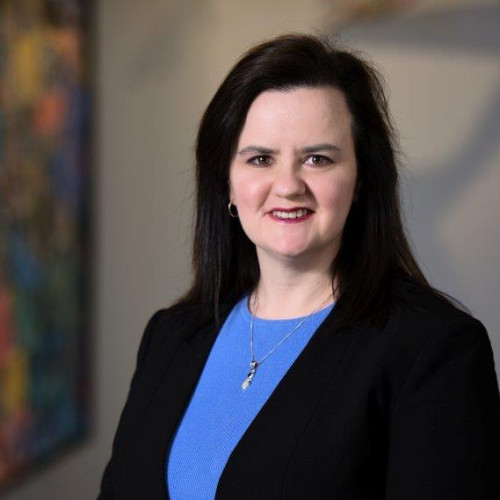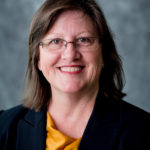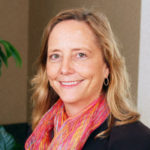By: Hilary Wiek, CFA, CAIA, Society Volunteer
CC1: When’s the next CFA event coming up?
CC2: June 5, 7:30 to noon at the Women’s Club of Minneapolis.
CC1: Wow! That’s long! What’s the topic?
CC2: Diversity and Inclusion. Looks like there will be a variety of speakers, including a Keynote from someone at Blackrock.
CC1: That sounds like a seriously long sales pitch. Plus our team is humming along and this is no time to mess with the process by inserting someone who isn’t a good fit into the investment team. I don’t see the relevance.
CC2: Yeah, I think I’ll skip. Sounds like it’s just for the ladies, and there are so few of them in the CFA Society that it probably won’t even be a good networking opportunity.
What actually happened:
Eleven tables of roughly eight places each were filled with women and men (the vast majority were women; I had no idea the CFA Society of Minnesota reached so many!) in all stages of investment career progression. There were representatives from banks, asset managers (local to global), consultants, and allocators such as pensions and non profits. The keynote speaker was a man – of mixed African American and Syrian ancestry who had been raised in a white family with two white sisters and one Korean/African American brother. And he’d worked to purposefully staff President Obama’s administration during both administrations.
There were no sales pitches – these were discussions about human capital and how they interact, a topic of never-ending need for improvement at all organizations. Best practices in this area will lead to competitive advantage (evidence was provided – see successor blog posts on this), but everyone who spoke admitted to still being on a journey to improve in the area of diversity and inclusion and no one felt they had reached the finish line – and likely never would. This is a topic area that requires intentionality and high-level leadership support for a dent to be made, and even with those elements, it will still take many years to arrive at an ideal vision.
The event mixed up the formats – interactive presentations, table discussions, and panels. The assemblage was instructed at the beginning to go beyond discussion of the problems; this has been done for decades ad nauseum. We were charged with having an important and uncomfortable conversation with the purpose of arriving at concrete things we could do to improve the diversity and inclusion of our industry currently dominated by white males.
As for whether this event was appropriate for everyone – data was provided from one study that showed that diverse investment teams performed spectacularly better than homogenous teams. The varying perspectives, and added conflict they bring, provided better researched investment ideas because the teams pushed back harder against colleagues who were given no benefit of the doubt because of any sort of shared tribal affiliations.
In succeeding blog posts about this event, I’ll dive into further details from CFA Institute research on the subject of Diversity and Inclusion as well as outline aspects of the hottest topic areas in the space. Finally, I’ll share some concrete steps that firms can consider to better improve the hiring and retention of diverse candidate and staffing pools.







 Carol Schleif is everything a role model for young professionals should be. With her dedication and go-getter attitude, Schleif has swiftly climbed the financial ladder to her current position as Deputy Chief Investment Officer at Abbot Downing; which was recognized as The Best National Private Asset Manager by Family Wealth Report Awards in 2016. But, where did her career in the financial industry start?
Carol Schleif is everything a role model for young professionals should be. With her dedication and go-getter attitude, Schleif has swiftly climbed the financial ladder to her current position as Deputy Chief Investment Officer at Abbot Downing; which was recognized as The Best National Private Asset Manager by Family Wealth Report Awards in 2016. But, where did her career in the financial industry start?  Tell me a little about yourself.
Tell me a little about yourself. Tell me a little about yourself.
Tell me a little about yourself. With her merited achievements and stark determination, Dr. Mary Daugherty has successfully shaped a career that utilizes her CFA designation and PhD all the while keeping her personal values a priority. When hearing about her numerous successes, many wonder, “How did she get started?”
With her merited achievements and stark determination, Dr. Mary Daugherty has successfully shaped a career that utilizes her CFA designation and PhD all the while keeping her personal values a priority. When hearing about her numerous successes, many wonder, “How did she get started?”